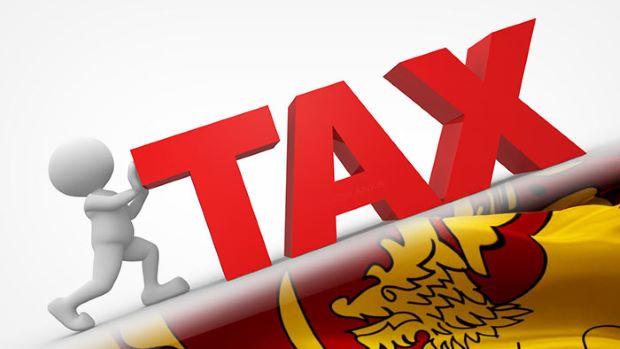SC determines Sri Lanka’s Inland Revenue (amendment) bill can be passed by simple majority
COLOMBO – Sri Lanka’s new Inland Revenue (Amendment) Bill is not inconsistent with the Constitution and can be passed in Parliament by a simple majority, the Supreme Court has determined.
The bill was challenged in the Supreme Court in terms of article 121(1) of the Constitution.
Speaker Mahinda Yapa Abeywardena told Parliament on Tuesday (5) court had held that neither the bill nor any of its provisions are inconsistent with any provisions of article 12 of the constitution.
Minutes after the Speaker’s announcement, State Minister of Finance Shehan Semasinghe tweeted that the court’s determination will establish credibility both domestically and internationally in relation to economic stability.
“Few opportunistic political forces worked to destabilize the foreign debt restructuring process by delaying the domestic debt optimization program by challenging the Gazette dated 14th July 2023 related to the Inland Revenue (Amendment) Act.
“The attempt was to weaken the emerging economy and achieve narrow political goals. However with today’s determination of the Supreme Court announced in parliament will establish credibility both domestically & internationally in relation to economic stability,” he said.
Mahindananda Aluthgamage, a government MP who chairs the Sectoral Oversight Committee on National Economic and Physical Planning, said on August 17 that the proposed amendments to the Inland Revenue Act will serve to address purported underperformance of Inland Revenue Department (IRD) officials in a bid to enhance income tax collection.
The objective is to make formidable decisions regarding officials not contributing effectively to the state’s tax revenue enhancement, a statement from the president’s media division (PMD) quoted Aluthgamage as saying.
The MP noted that there is only one person in the country who pay taxes in excess of 300 million rupees.
“There’s only one person in Sri Lanka who pays more than 300 million rupees in tax. Only three people between 50 million and 100 million rupees; only 16 people between 25 and 50 million; 137 between 5 and 10 million; 508 between 2 and 5 million; 804 between 1 and 2 million, and 5,473 between 500,000 and 1 million rupees,” he said.
An immediate overhaul of the nation’s tax policy is imperative, the PMD quoted Aluthgamage as saying.
Speaking at a meeting of the committee he chairs, Aluthgamage said in July that only 31,000 Sri Lankans out of some 500,000 persons with registered income tax files pay personal income tax while 328 registered limited companies out of 105,000 contribute to 82% of tax revenue. Sri Lanka has been compelled to increase its tax revenue in the wake of the 2022 currency crisis, the worst in decades, and the subsequent agreement with the IMF over a 2.9 billion dollar extended fund facility. However, resistance to a hike in progressive personal income tax has been high, with many high-income earning professionals in the state sector holding a number of protests against the increase.
Value added taxes were also raised to 15% from 8% last year. Another 2.5% cascading tax was imposed on top of VAT, the effect of which was estimated to be around 4.5% or more through the cascading effect.
The IMF had reportedly asked the cash strapped Sri Lankan government to impose taxes on all who receive monthly income of above 41,667 rupees as a prior condition for the bailout, but
President Ranil Wickremesinghe’s administration had instead imposed a Pay As You Earn (PAYE) tax on everyone who earns over 100,000 rupees a month.
The IMF has defended the tax hike, arguing that creditors and investors will not support Sri Lanka because tax to GDP had fallen steeply. Taxes, including value added taxes were slashed in 2019 December to target a ‘persistent output gap’, after serial currency crises from flexible inflation targeting reduced growth.
-economynext.com



Comments are closed, but trackbacks and pingbacks are open.